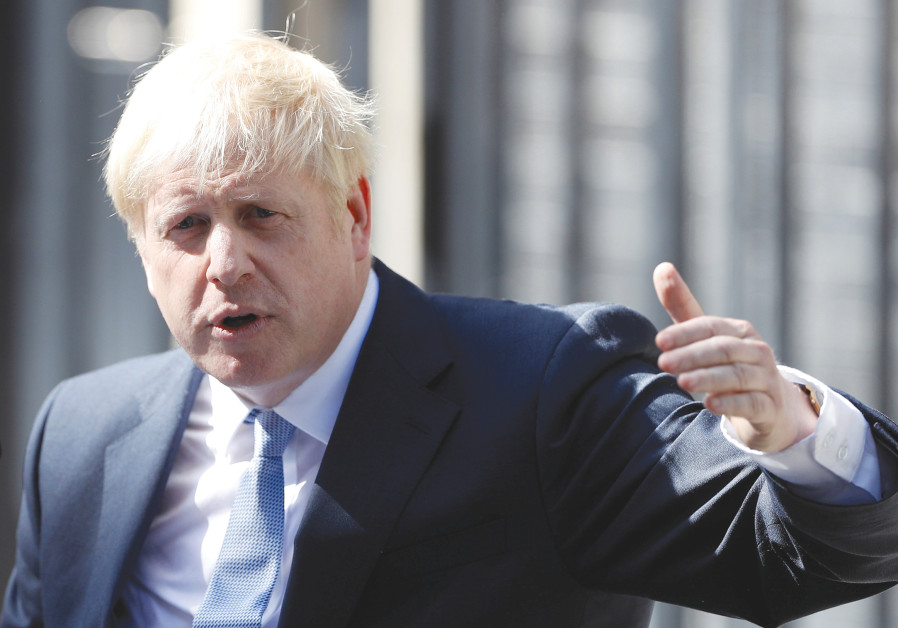 ŻYDZI W POWSTANIU WARSZAWSKIM
ŻYDZI W POWSTANIU WARSZAWSKIM
Żydowski Instytut Historyczny
Wchodzący w skład Armii Ludowej samodzielny pluton ŻOB był jedyną w powstańczych szeregach formacją bojową stricte żydowską.
 Więźniowie uwolnieni z tzw. Gęsiówki / Źródło: Archiwum ŻIH
Więźniowie uwolnieni z tzw. Gęsiówki / Źródło: Archiwum ŻIH
1 sierpnia 1944 roku o godzinie 17.00 wybuchło w Warszawie powstanie. Wśród walczących byli także Żydzi. Część z nich uczestniczyła wcześniej w krwawo stłumionym powstaniu w getcie warszawskim, a następnie w leśnej partyzantce. Nie trzeba być psychologiem – pisał o swoich towarzyszach Antek Cukierman – żeby zrozumieć, co czuli ci ludzie. Przypuszczam, że cały czas marzyli o chwili, kiedy będą mogli stanąć do walki przeciwko Niemcom. I przyszedł 1 sierpnia 1944 i dał im szansę spełnienia tego marzenia.
Cukierman został komendantem Żydowskiej Organizacji Bojowej po śmierci Mordechaja Anielewicza w bunkrze przy ul. Miłej 18. Wraz z Cywią Lubetkin, Markiem Edelmanem i kilkudziesięciu innymi bojowcami, którym w maju 1943 roku udało się wydostać z płonącego getta, niezwłocznie przystąpił do kolejnego powstania.
 Odezwa Żydowskiej Organizacji Bojowej
Odezwa Żydowskiej Organizacji Bojowej
Wchodzący w skład Armii Ludowej samodzielny pluton ŻOB był jedyną w powstańczych szeregach formacją bojową stricte żydowską. Wśród powstańców było jednak znacznie więcej Żydów. W momencie wybuchu powstania wielu z nich zgłaszało się na ochotnika do pierwszego napotkanego oddziału, nie zwracając uwagi na konotacje polityczne danej grupy. Inni zaangażowani byli w działania polskiego podziemia na długo przed wybuchem powstania.
Trudno oszacować, ilu Żydów chwyciło w sierpniu 1944 roku za broń. Większość z nich walczyła i ginęła pod przybranymi w czasie wojny polskimi nazwiskami. Ich pochodzenie było często tajemnicą także przed kolegami z oddziału. Obawiali się – nie bezpodstawnie – że gdyby wyszło ono na jaw, towarzysze broni mogliby zacząć traktować ich pogardliwie albo w ogóle nie dopuścić do walki. Realna okazała się też groźba, że w pewnej chwili żydowskiego powstańca może dosięgnąć „zbłąkana kula”, wystrzelona przez któregoś z kolegów.
Postawy przyjmowane przez żołnierzy wobec walczących w ich szeregach Żydów były jednak bardzo różne. W niektórych oddziałach panowała pełna akceptacja, umacniana jeszcze przez fakt walki ze wspólnym wrogiem. Różne były też strategie żydowskich powstańców. Samuel Willenberg, żołnierz Wojska Polskiego podczas kampanii wrześniowej i uczestnik buntu w Treblince, przystępując do batalionu AK „Ruczaj”, podał swoje prawdziwe nazwisko. Nie chciał ginąć – jak mówił po latach – jako fikcyjny Ignacy Popow, którego nazwisko widniało wówczas w jego dokumentach.
 Samuel Willenberg, Godzina „W”, 1.08.2013 / Źródło: ŻIH
Samuel Willenberg, Godzina „W”, 1.08.2013 / Źródło: ŻIH
Udział w Powstaniu Warszawskim brali nie tylko liczni Żydzi, ale też Żydówki. O godzinie siedemnastej usłyszałam strzały – pisała Adina Blady-Szwajger, lekarka i łączniczka ŻOB – Wybiegłam na schody. Tego wrażenia nie zapomnę. Po schodach zbiegał – oficer polski! W mundurze Brygady Karpackiej! Wszyscy płakali i ja z nimi. W suterenie urządzał się szpital polowy. Podeszłam do komendanta. Był to major »Pobóg«, przedstawiłam się, powiedziałam kim jestem i natychmiast zostałam zaliczona w poczet personelu szpitala.
W szeregi powstańcze, podobnie jak ich polscy rówieśnicy, wstępowały także dzieci i młodzież żydowska. Znani ze swojej brawury byli bracia: Zalman „Miki” i Perec „Cwaniak” Hochmanowie. Po likwidacji getta walczyli o przetrwanie handlując papierosami na pl. Trzech Krzyży. Po wybuchu powstania natychmiast włączyli się w walkę z Niemcami. Służyli jako łącznicy w działającym na terenie Śródmieścia batalionie „Sokół” i nie odstępowali na krok legendy oddziału, Antoniego Godlewskiego, czyli „Antka Rozpylacza”.
 Powstańcy / Źródło: ŻIH
Powstańcy / Źródło: ŻIH
Na ulicach powstańczej Warszawy usłyszeć można było języki wielu państw okupowanej przez Niemców Europy – węgierski, grecki czy francuski. Posługiwali się nimi Żydzi wywiezieni ze swoich ojczyzn do Oświęcimia, a następnie przeniesieni do Obozu Koncentracyjnego Warszawa, tzw. Gęsiówki. Przetrzymywani tam więźniowie zatrudnieni byli przy pracach porządkowych w ruinach dawnego getta. 5 sierpnia Harcerski Batalion Szturmowy „Zośka” zaatakował Gęsiówkę i wyzwolił 348 uwięzionych tam Żydów. Zdecydowana większość z nich dołączyła do powstańców, także do oddziałów liniowych.
Dla Polaków Powstanie Warszawskie było patriotycznym zrywem, który przyniósł miastu unicestwienie. Ostatnim żyjącym w Warszawie Żydom wybuch powstania umożliwił wyjście z ukrycia i odzyskanie własnej tożsamości. Ci, którym udało się przeżyć zagładę własnego narodu, chwycili za broń, aby walcząc w polskich oddziałach szukać odwetu na Niemcach. Wiem, że dla większości ludzi powstanie to był okres najokropniejszych męczarń. Ale dla mnie to był okres cudownie odzyskanej wolności – pisała w rok po wojnie uwolniona z Gęsiówki Zofia Samsztejn.
Zawartość publikowanych artykułów i materiałów nie reprezentuje poglądów ani opinii Reunion’68,
ani też webmastera Blogu Reunion’68, chyba ze jest to wyraźnie zaznaczone.
Twoje uwagi, linki, własne artykuły lub wiadomości prześlij na adres:
webmaster@reunion68.com




